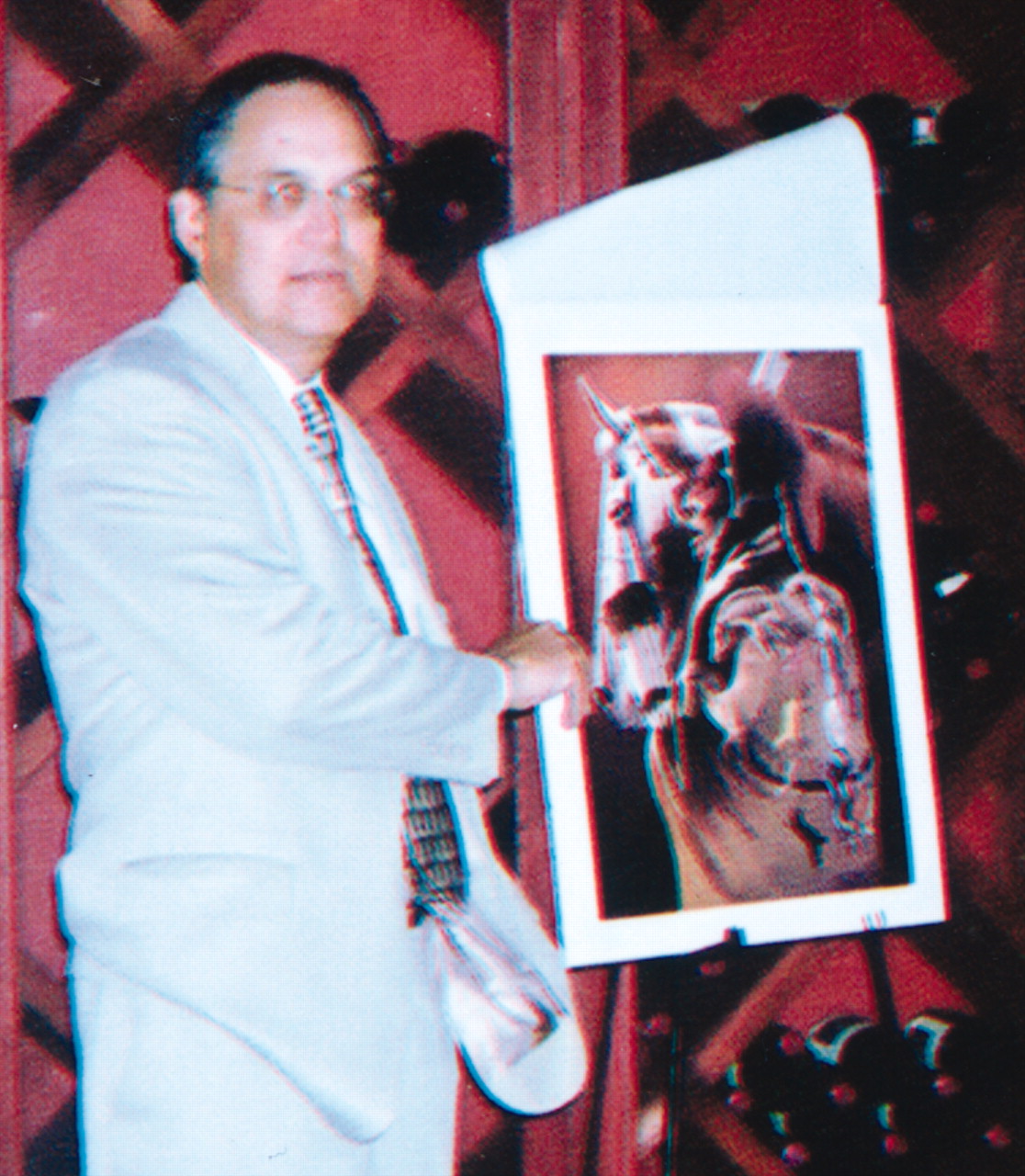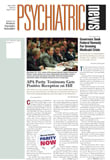James W. Thompson, M.D., M.P.H., has left his position as director of APA’s Division of Education, Minority, and National Programs to take a position at the National Institutes of Health (NIH) as executive director of graduate medical education. His new position began August 1.
“My four-and-a-half years at APA have been stimulating and productive,” said Thompson. “I’ve enjoyed working with the members, and particularly with the staff. I often say ‘we’ when speaking of things accomplished during my tenure at APA, because without our loyal and talented staff, I could not have accomplished nearly as much.”
Said APA Medical Director Steven Mirin, M.D., “We are grateful to Jim Thompson for his leadership in expanding APA’s array of continuing medical education programs while overseeing the development of policies and procedures to assure that our industry-supported educational programs remain of high quality and free of bias. We thank Jim for his contributions to APA and wish him every success in this new phase of his career.”
Asked about his accomplishments at APA, Thompson first pointed to the continuing medical education (CME) program at APA. When he arrived, he indicated that CME was, except for APA’s two annual meetings, very much a shoestring operation. “Now,” Thompson said, “CME is a full department with several staff, and it produces a multitude of products for APA members.”
He also noted APA’s new CME Web site at www.psych.org/cme/apacme/, the Clinical Highlights CME products from the spring annual meeting (Psychiatric News, August 2), and a new self-assessment exam. This new exam will soon become part of APA’s Lifelong Learning in Psychiatry family of educational materials, led by Associate Division Director Deborah Hales, M.D.
“Most of all,” Thompson reported, “I’m pleased to say that we have greatly improved our procedures for reviewing and controlling commercially supported programs, such as the annual meeting industry-supported symposia. We’re now seen as a model program in this area.”
While at APA, Thompson also served as a member of the Accreditation Review Committee of the Accreditation Council for Continuing Medical Education (ACCME) and has become a nationally known figure in the CME world.
Thompson also pointed to the reorganization and repositioning of APA’s education function at APA. “Five years ago, that office was a hodge-podge of various functions and was quite isolated,” he opined. “Since that time, we’ve separated it into several different functional offices, added the Office of Career Development and Women’s Programs, and improved the communication among the offices, other staff, and APA members.”
Thompson indicated that nothing pleases him more than having a member brag about one of his staff. “It makes it all worthwhile,” he indicated.
Thompson also expressed pleasure at the improved relationship over the last few years with outside organizations. “We’ve reached out to organizations like the American Association of Directors of Psychiatric Residency Training and Association of Directors of Medical Student Education in Psychiatry, the subspecialty organizations, the American Board of Psychiatry and Neurology, other medical societies, and medical student organizations.” He indicated that such outreach has resulted in a number of collaborative projects that benefit APA members, such as resident and early career psychiatrist fellowships.
Minority and national affairs is an area in which Thompson feels that much has been accomplished during his tenure, but also much remains to be done.
“We succeeded in physically moving this office into the center of headquarters activity, upgraded it to a department, and added a high-level assistant to the director,” said Thompson. “We were able to add and enhance several programs, including recruitment programs for minority medical students. This staff does more with less than any other group in the central office, but this is an area that needs to be upgraded still further, as it represents the majority of APA members,” he noted.
Thompson has similar feelings about the Office of HIV/AIDS Psychiatry. “This is one of the most productive offices at APA, and it puts out very-high-quality products, including a curriculum, a Web site, and a practice guideline,” he stated. “But we’ve been unable to add significantly to the resources available to this program.”
Thompson pointed out that the AIDS Education Project is in the American Psychiatric Institute for Research and Education, of which he was director of education and career development.
The other offices in APA’s education division include those devoted to ethics and the annual meetings. “In ethics, we’re positioned to take a new educational direction that will be of great benefit to our members and our patients,” he stated. “And what can you say about the staff of the Annual Meetings Department? They simply put on the best medical meetings in the world.”
At NIH Thompson will oversee that institution’s 16 graduate medical education programs. Most of these are research oriented, although some are clinical. He indicated that research training has always been a personal interest. He is a health services researcher, with a number of publications on the severely mentally ill, minorities, and nosology. At the University of Maryland, he helped create a resident research track. At APA he led the Program for Minority Research Training in Psychiatry and worked with the Office of Research to enhance research training in psychiatry residencies.
About his new position, Thompson commented, “I’m looking forward to the opportunity to build the NIH research training operation into the finest operation of its kind in the world. I believe that NIH should be at the forefront of education, and I will work hard to make that the case.”
Thompson is becoming an officer in the U.S. Public Health Service and retains his faculty appointment at the University of Maryland in Baltimore. ▪

